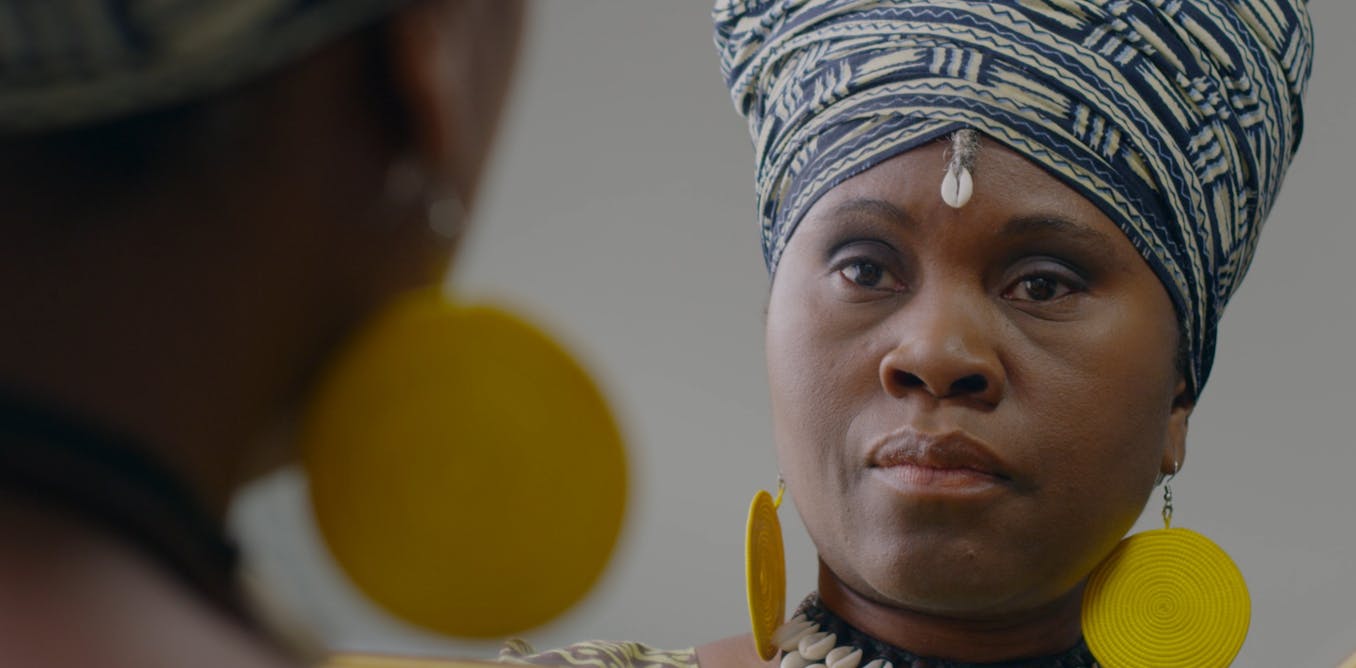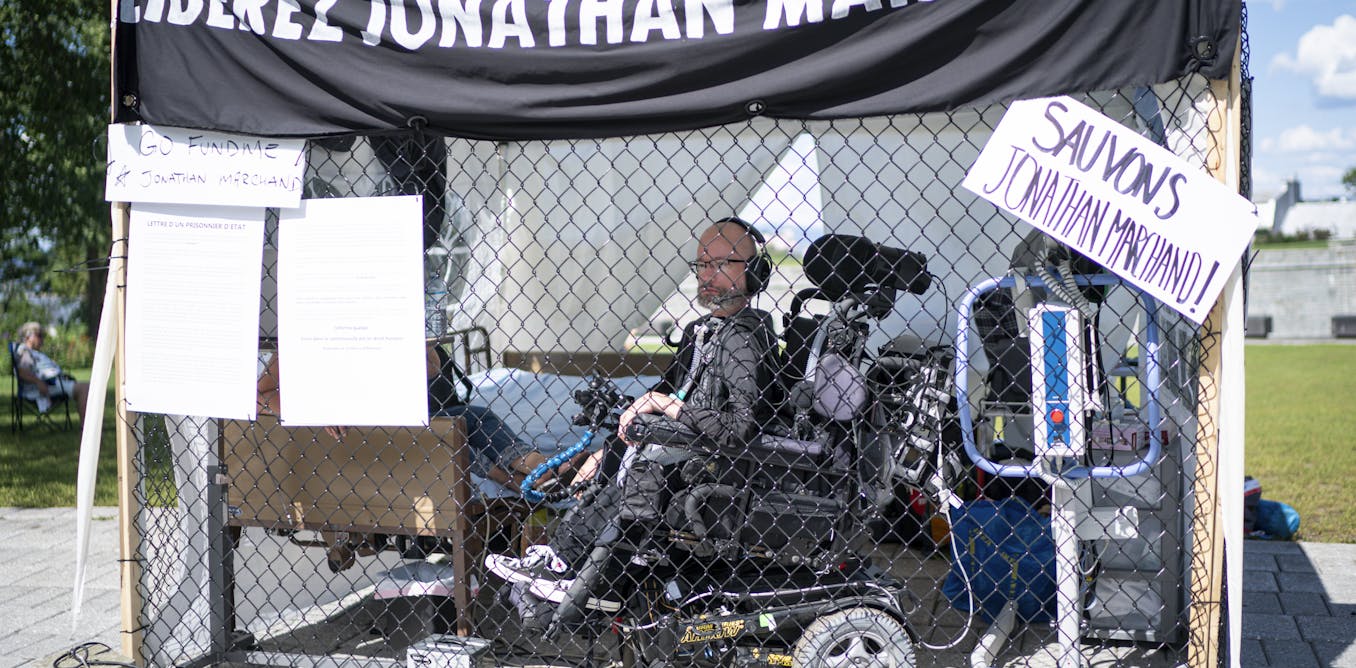'Squid Game' highlights plight of South Korean workers sacrificed for nation’s economic gain
Squid Game alludes to anti-worker violence that has permeated South Korean labour history, and reminds viewers of the need to overcome real inequalities.
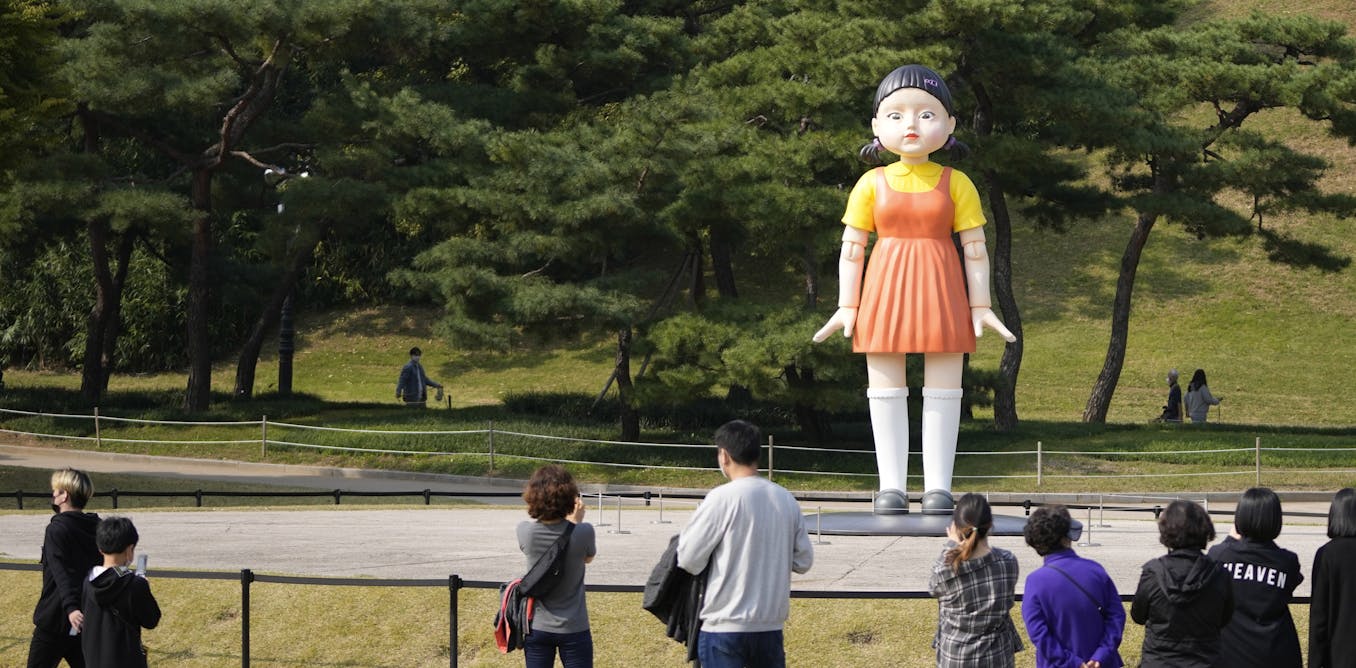
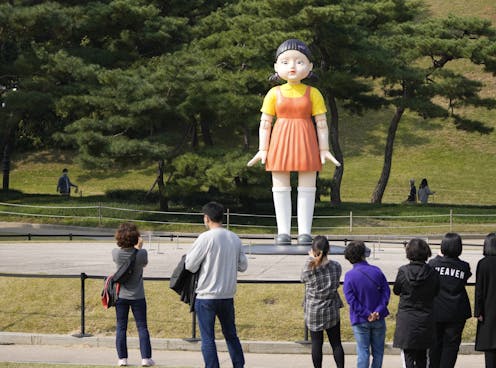
Critics have noted that Squid Game is a critique of capitalism and inequality. Creator Hwang Dong-Hyuk has said it’s about how people go deeply into debt to survive.
Squid Game addresses this problem in an escapist, dystopian tale, suggesting the extreme lengths people might go to in order to rid themselves of debt.
As one of us argues in research about neoliberalism, escapism and seeking utopia, the tension between the traumatic experience of work and the need to survive prompts escapism, precisely because escape from wage labour is impossible for most people.
Squid Game alludes to the actual violence of South Korean labour history, as well as the need to overcome real inequalities of income and living conditions, in South Korea and globally.
Questioning capitalism
Many people were questioning capitalism before Squid Game debuted in September.
Even before the COVID-19 pandemic, just over 2,000 billionaires controlled the same amount of wealth as the 4.6 billion people who constitute 60 per cent of our global population. During the pandemic, American billionaires added US$2.1 trillion to their hoard.
In Squid Game‘s first episode, protagonist Seong Gi-Hun signs away his organs to pay his loan sharks. The show has spotlighted how South Koreans have extraordinarily high levels of personal debt, brought on by a toxic combination of unemployment, easy loans and high interest rates.
Sacrifice of workers for economic gain
In The Wealth of Nations, 18th-century economist Adam Smith argued that property rights require state protection because they create resentment among the “have-nots.” Many political scientists since, such as Cornelia Beyer, have explored how poverty and exclusion lead to crime and social breakdown.
These tensions can be observed in the plight of South Korean workers sacrificed for the nation’s push for economic prosperity.
Labour historian Chun Soonok writes how in the 1970s, in the textile district of Seoul’s Peace Market, girls as young as 14 were crammed together in tiny rooms working non-stop amid dust, noxious chemicals and physical abuse from supervisors.
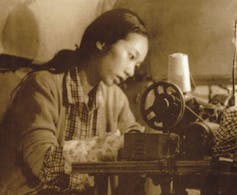
Chun’s book, They Are Not Machines: Korean Women Workers and their Fight for Democratic Trade Unionism in the 1970s, relays how the modern South Korean labour movement emerged from women’s leadership in this period.
Worker abuses famously led Chun’s older brother, activist Tae-Il, to self-immolate in protest, an act that sparked the modern South Korean labour movement. Workers first joined official unions and later formed their own, independent organizations.
Pro-labour, democracy movements
This labour organizing was suffused with violence. Chun details police and strikebreaker attacks on factory sit-ins in the 1970s and 1980 when there were state-led torture and killings of workers and activists. As sociologist Paul Y. Chang demonstrates, in the 1970s, there were over 1,000 arrests, 130 forced firings, 348 acts of violence, six kidnappings and two killings.
In 1975, the South Korean state imprisoned and tortured 23 people they accused of violating the National Security Law, executing eight of them the day after their convictions.
This repression continued in the state’s response to pro-democracy movements during the 1980s, from the 1980 Gwangju Uprising to the 1987 June Democracy Movement. In 1987, police waterboarded student activist Park Jong-Chol to death.
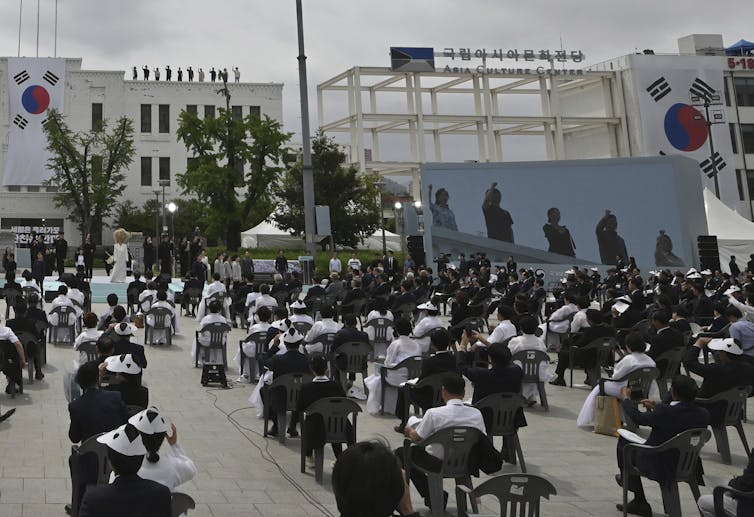
Wave of mass strikes
The demands for political liberalization by the democracy movement led directly to the “Great Worker Struggle,” a wave of mass strikes that formed 4,000 new unions with 700,000 new union members, as sociologist Hagen Koo explains.
Despite victories, including unions gaining recognition and the relaxation of harsh workplace disciplinary measures, state repression of the labour movement continued. In April 1989, Koo writes, police launched a military-style attack on striking Hyundai Heavy Industries workers in Ulsan, using boats, helicopters and 15,000 riot police.
In 1991, the president of Hanjin Heavy Industries Workers’ Union died while being questioned by police in prison.
This systemic violence evolved in the neoliberal era. Sociologist Lee Yoonkyung shows how chaebols, South Korea’s family-run conglomerates, fund their subcontractors to hire union-busting private security firms, particularly against the Metal Unions Federation, the country’s strongest union grouping.
Squid Game refers to this history when Gi-hun is revealed to be an ex-worker at Dragon Motors — a reference to real-life South Korean automaker Ssangyong Motors.
Workers from Ssangyong Motors fought forced early retirement and termination in 2009. Lee notes that their defeat plunged many into depression and that eight workers died by suicide.
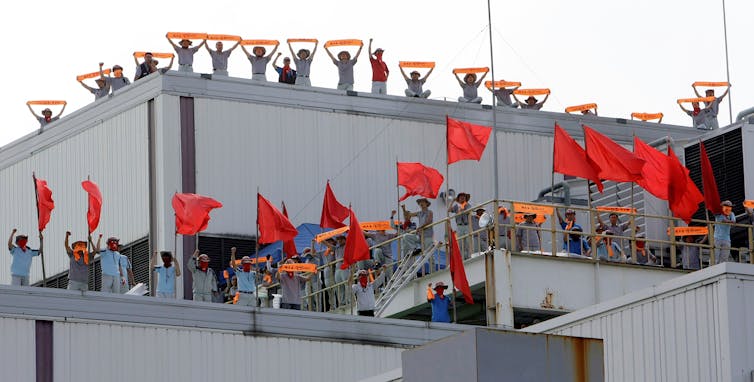
Poverty and inequality gathering pace
Squid Game‘s director, Hwang Dong-hyuk, had the series in development for more than 10 years and he was unsure of how the series could be received. He notes that today, “violent survival stories are actually welcomed.”
Today’s world is marked by rising inequality; as sociologist Hagen Koo shows, by 2016, “Korea’s ratio of income for the top 10 per cent to the bottom 10 per cent was 4.78,” very close to that of the United States (4.89), the highest of nations in the The Organization for Economic Co-operation and Development.
This final conflict, when VIPs watch Gi-hun and Sang-woo’s final battle from the safety of a viewing box, mirrors capitalism’s survival game, where owners rationalize their production processes and lay off workers. The fight to save costs and raise profits sends the system into periodic convulsions. This was seen in 2008’s global economic crisis, when working people were victims.
In the final episode of Season 1, Gi-hun leaves a case full of cash for Sang-woo’s mother, with the proviso that she care for Sae-byeok’s young brother. While touching, it implied hopelessness; even if all the contestants survived, they couldn’t ease the low wages and high debt of South Korea’s workers.
Change, not escapism
Squid Game hints that individual solutions to poverty and debt are insufficient: workers are subject to the whims of the labour market and economic crises.
Upcoming national strikes are being planned by the Korean Confederation of Trade Unions against precarious employment. Activists are pushing for union organizing rights and for better working conditions.
These reforms are necessary for a front-line defence of living conditions. But they are only a step towards changing the problems with neoliberalism: as long as wages, housing and other essentials are bought and sold on the market, the inequalities Squid Game vividly portrays will continue.![]()
The authors do not work for, consult, own shares in or receive funding from any company or organization that would benefit from this article, and have disclosed no relevant affiliations beyond their academic appointment.
What's Your Reaction?


















































































